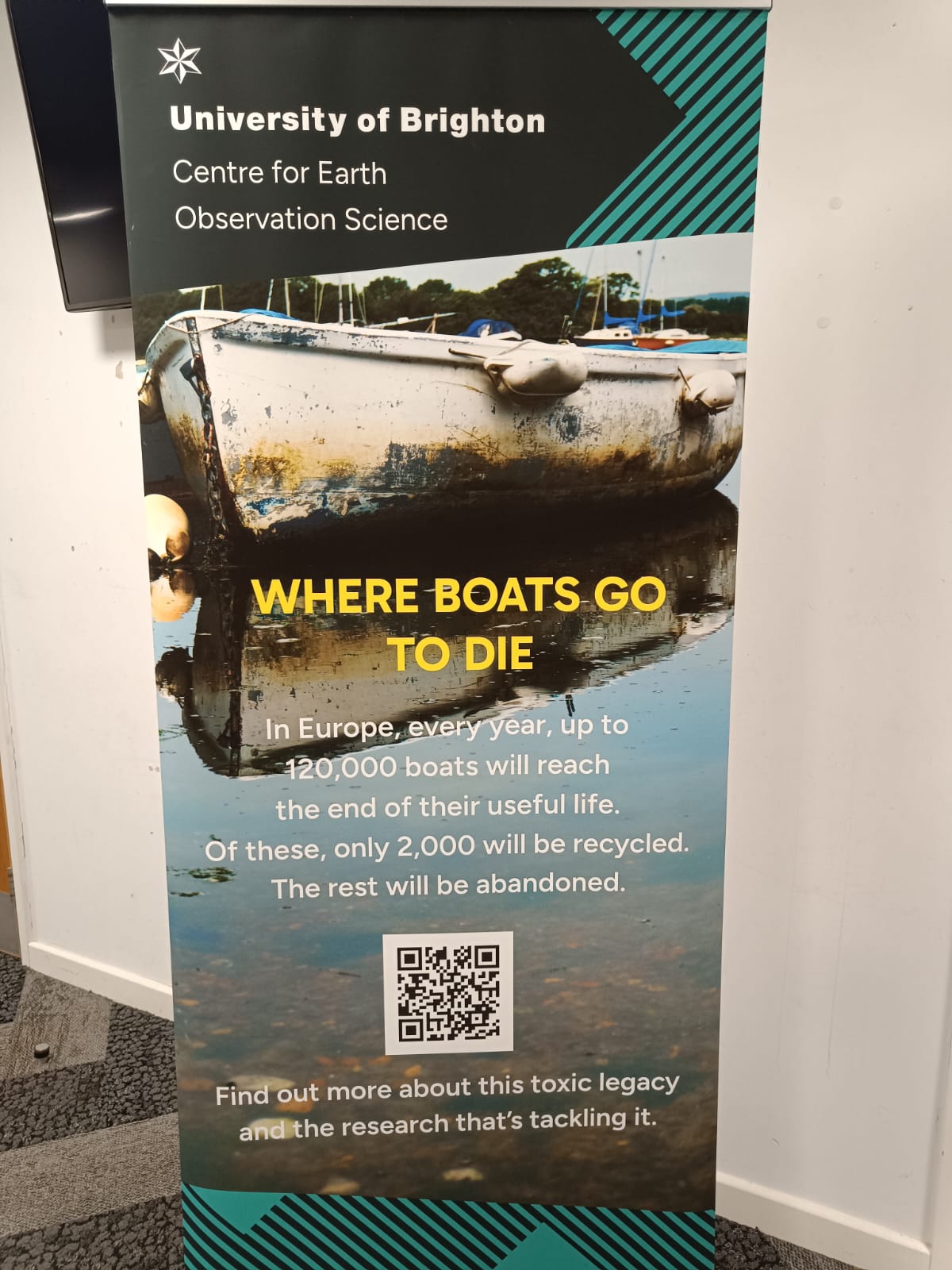Venice Lagoon Plastic Free recently attended, by invitation, the Symposium “GRP/Abandoned boats and impact on coastal environments” held on July 5 at the Centre for Earth Observation Science at the University of Brighton (UK).
The purpose of the event was to delve into the issues surrounding the management and environmental impacts of end-of-life Glass Reinforced Plastic (commonly known as fiberglass) boats. The symposium aimed to facilitate knowledge exchange between scientists and policymakers, while raising awareness of this issue to a broader audience.
Among the speakers were Corina Ciocan, Principal Lecturer at the University of Brighton and event organizer; John Summerscales, University of Plymouth (UK); Joanna Soanes, Project Manager for Marine Litter and Derelict Vessels Prevention Program, Natural Resources Wales; and Angie Richard (Davis), a multidisciplinary storyteller and researcher.
VLPF shared its experiences by presenting the results and methodologies of the permanent programme “Ghost Boats”. The Ghost Boats program, initiated in cooperation with GEES RECYCLING of Aviano as a spin-off of the H2020 MAELSTROM project (currently concluding), is now independently and permanently operational in the UNESCO World Heritage site of Venice and its Lagoon. Here, numerous abandoned fiberglass boats release highly polluting components such as micro-and macroplastics, paints, and metals.
The project involves mapping the boats (often abandoned in hard-to-reach locations), assessing their condition, removing them, and subsequently conducting advanced mechanical recycling of the recovered material. Recently, this process has been complemented by activities including sampling of sludge, water, and soil that have come into contact with the “Ghost Boats” to assess the presence of toxic elements and micro-contaminants, in collaboration with the Montani Technical and Technological Institute of Fermo in Italy.
At the Symposium, partners and VLPF agreed to expand scientific and managerial exchanges to understand and manage this issue, which affects both Mediterranean and Atlantic coasts. The impact of abandoned boats on the British coastline, due to the sheer number of vessels and the challenges of recovery posed by the terrain, was highlighted through the fascinating research conducted by marine biologist Dr. Corina Ciocan of the University of Brighton and her colleagues.
VLPF was able to broaden its network, establishing connections with scientific institutions, government entities, and private partners present at the Symposium. The underlying purpose is to promote the experience gained in the Venice Lagoon as a significant benchmark replicable in other locations facing similar issues.
